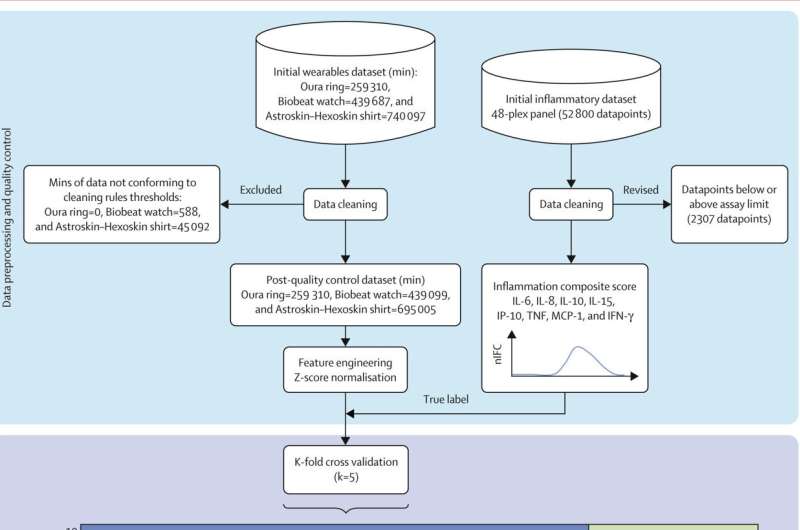In a world first, this study has led to the development of an artificial intelligence (AI) platform that can accurately predict acute systemic inflammation—an early immune response to viral respiratory tract infections (VRTIs)—by analyzing biometric data from a smart ring, a smart watch or a smart shirt.
By detecting immune signals before symptoms appear, the system opens the door to earlier intervention, potentially saving lives and reducing health care costs by preventing complications and hospitalizations. This multidisciplinary work is published in The Lancet Digital Health.
“By the time an infection is detected based on clinical symptoms or PCR testing, it is generally already well underway,” said Dennis Jensen, Ph.D., senior author of the study, Scientist in The Institute’s Translational Research in Respiratory Diseases Program and Associate Professor in McGill’s Department of Kinesiology and Physical Education.

